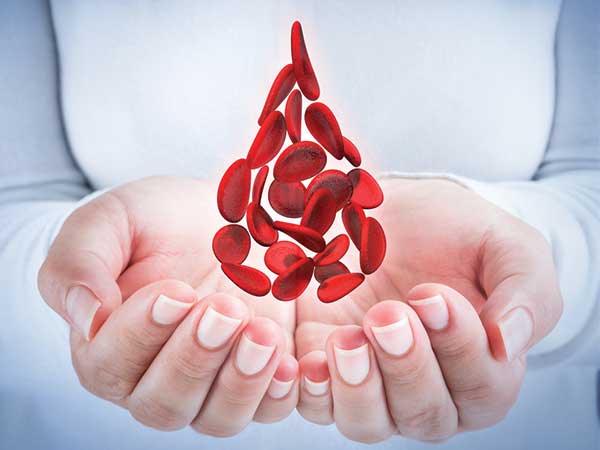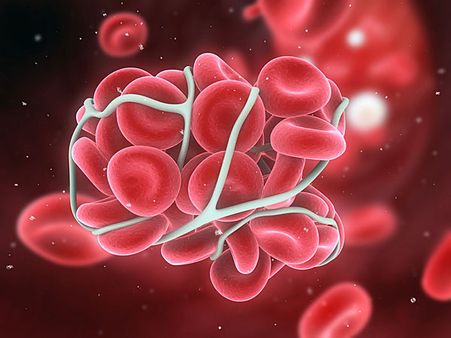Just In
- 1 hr ago

- 4 hrs ago

- 8 hrs ago

- 11 hrs ago

Don't Miss
- Sports
 Keen On Establishing Our Presence in South India: World No. 2 Badminton Brand Victor Rackets' India GM Ben Hsiung
Keen On Establishing Our Presence in South India: World No. 2 Badminton Brand Victor Rackets' India GM Ben Hsiung - Education
 Karnataka SSLC Result 2024 Soon, Know How to Check Through Website, SMS and Digilocker
Karnataka SSLC Result 2024 Soon, Know How to Check Through Website, SMS and Digilocker - Movies
 Masaba Gupta Expecting First Child With Hubby Satyadeep Misra; Neena Gupta Shares Excitement In VIRAL Post
Masaba Gupta Expecting First Child With Hubby Satyadeep Misra; Neena Gupta Shares Excitement In VIRAL Post - Finance
 7:1 Bonus, Rs 778.75/Sh Dividend In 20 Yrs: Infosys To Offer Massive Rewards, Up Next Rs 28/Sh Payout Soon
7:1 Bonus, Rs 778.75/Sh Dividend In 20 Yrs: Infosys To Offer Massive Rewards, Up Next Rs 28/Sh Payout Soon - News
 Social Media Users Laud Gujarat Titans' Fangirl, Call Her Ana de Armas' Lookalike
Social Media Users Laud Gujarat Titans' Fangirl, Call Her Ana de Armas' Lookalike - Technology
 Nothing Ear, Ear a With ANC, Up to 42.5 Hours of Battery Launched; Check Price and Availability
Nothing Ear, Ear a With ANC, Up to 42.5 Hours of Battery Launched; Check Price and Availability - Automobiles
 All About Electronic Stability Control ESC: Working & Advantages
All About Electronic Stability Control ESC: Working & Advantages - Travel
Telangana's Waterfall: A Serene Escape Into Nature's Marvels
9 Types Of People Who Are Prone To Blood Clots; Are You One Of Them?
Check out how and why a blood clot forms, in this article!
Imagine this, you have a viral fever which requires you to get a blood test done, but you also have an important presentation to prepare for work.
Now, most of us would definitely go in for the blood test and leave the presentation for later, right? That is because we prioritise our health over many other things in life!
Making health one of your priorities is a good thing because without good health, it is very hard to enjoy a quality life.
Even if you are suffering from a minor headache, it would be hard to have a peaceful time wherever you go, so imagine how it would be for people suffering from major diseases.

Diseases and ailments, especially when they cannot be cured, can definitely hinder a person's normal life and come in the way of daily activities.
For instance, people suffering from cancer may not be able to indulge in the normal activities they used to like prior to being affected by the disease, such as running, eating certain foods, travelling, etc.
So, we must always ensure that we take exceptional care of our health and do everything in our power to avoid diseases.
Different diseases have different causes and risk factors and some of the diseases may not have a specific cause at all!
Now, most of us would have heard about heart attacks and strokes and we may also know that they are usually caused by blood clots which are formed in your arteries.
Blood clots are formed when the blood in the arteries become coagulated or hardened, forming tiny clots that constrict the flow of blood from one part of the body to another, resulting in diseases and fatal consequences.
So, here are 9 types of people who are affected by blood clots more than the others.

1. People Who Are Overweight
If you BMI (Body Mass Index) is higher than the normal range and the excess storage of fat in your body deems you as overweight or obese, then you are at a higher risk of developing blood clots, because the fat tissues can coagulate the blood in the arteries.

2. People Who Smoke
We all know that smoking cigarettes regularly can have adverse health effects; however, we may not know that they can cause blood clots too. The toxins and nicotine content in cigarettes harden your blood cells and constrict your arteries, thus leading to blood clots.

3. Pregnant Women
During pregnancy, a lot of hormonal changes and fluctuations happen in a woman's body. There is a high production of the oestrogen hormone during pregnancy. In some women, oestrogen leads to the hardening of blood and causes blood clots.

4. People Who Take Birth Control Pills
Many sexually active women who do not want to start a family anytime soon take birth control pills, Birth control pills induce a high amount of oestrogen in the body, which may also cause blood clots.

5. People With Inflammatory Diseases
If a person is suffering from inflammatory diseases of the heart, lungs, kidney and other such organs, the inflammatory agents can get into the blood stream, giving rise to clots.

6. People With Infections
If you have an internal infection in any of the organs, the microbe which is causing the infection can also get into the blood stream and harden the blood, thus leading to blood clots.

7. People With Sedentary Jobs
If you are someone who sits for too long or if you have a desk-bound job, you are at a risk of developing blood clots, because it inhibits the healthy flow of blood and hardens the blood cells, causing clots.

8. Heredity
Blood clots can also be caused without any specific reason, for example, if you have a family history, that is, if your ancestors have suffered from blood clots, you could be prone to them too.

9. Prior Instances
If you have had prior instances of blood clots, or if you have suffered from blood clots before and have been treated, there are chances that they could affect you again.
-
 healthDry Ice Served Mistakenly As Mouth Freshener At Gurgaon Cafe, Know Effects Of Dry Ice If Ingested
healthDry Ice Served Mistakenly As Mouth Freshener At Gurgaon Cafe, Know Effects Of Dry Ice If Ingested -
 insyncWhy Did Mongol Warriors Drink Blood? How Did It Play Crucial Role In Military Expeditions?
insyncWhy Did Mongol Warriors Drink Blood? How Did It Play Crucial Role In Military Expeditions? -
 wellnessWorld Diabetes Day 2023: Avoid These Common Mistakes When Testing Blood Sugar Levels
wellnessWorld Diabetes Day 2023: Avoid These Common Mistakes When Testing Blood Sugar Levels -
 pregnancy parenting14 Children Infected With HIV, Hepatitis After Blood Transfusion In UP Hospital: How Did It Happen?
pregnancy parenting14 Children Infected With HIV, Hepatitis After Blood Transfusion In UP Hospital: How Did It Happen? -
 wellnessDid You Know Your Own Blood Can Be Used For Pain Relief?
wellnessDid You Know Your Own Blood Can Be Used For Pain Relief? -
 healthWorld Blood Donor Day 2023: People Who Shouldn't Donate Blood
healthWorld Blood Donor Day 2023: People Who Shouldn't Donate Blood -
 healthWorld Thalassemia Day 2023: Expert On Alpha Thalassemia; What Lifestyle Changes Should One Adopt?
healthWorld Thalassemia Day 2023: Expert On Alpha Thalassemia; What Lifestyle Changes Should One Adopt? -
 wellnessWHO Urges Eligible People To Make Regular, Voluntary, Unpaid Blood Donations
wellnessWHO Urges Eligible People To Make Regular, Voluntary, Unpaid Blood Donations -
 disorders cureCOVID-19 And Blood Thinners: How Do They Help Increase Survival Rates In Critical COVID-19 Patients?
disorders cureCOVID-19 And Blood Thinners: How Do They Help Increase Survival Rates In Critical COVID-19 Patients? -
 wellnessAre There Home Remedies For Blood In Stool?
wellnessAre There Home Remedies For Blood In Stool? -
 wellnessDo You Donate Blood? Here Are The Benefits And Risks Of Blood Donation
wellnessDo You Donate Blood? Here Are The Benefits And Risks Of Blood Donation -
 wellnessWhat Are Blood Thinners? Read About 8 Natural Blood Thinning Foods
wellnessWhat Are Blood Thinners? Read About 8 Natural Blood Thinning Foods


 Click it and Unblock the Notifications
Click it and Unblock the Notifications



